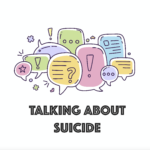
Olga Lainidi summarises a paper from the UK COVID-19-MH study, which explores the links between COVID-19 information-seeking behaviours during the pandemic, and depression, anxiety and loneliness.
[read the full story...]
Olga Lainidi summarises a paper from the UK COVID-19-MH study, which explores the links between COVID-19 information-seeking behaviours during the pandemic, and depression, anxiety and loneliness.
[read the full story...]
Gemma Wilson-Menzfeld and Alison Osborne review a nationally representative US survey which finds that loneliness affects people of all ages; particularly young adults, people in middle age, and also very old age.
[read the full story...]
In her debut blog, Charlotte Huggett summarises a recent online survey which explored views on the language we should use to discuss suicide. The study concludes that the most acceptable phrases are currently: “attempted suicide”, “took their own life”, “died by suicide” and “ended their life”.
[read the full story...]
Edel Ennis writes her debut blog and reviews an online RCT on the effects of suicide awareness materials on individuals with recent suicidal ideation or attempt. Do stories of hope and recovery help protect people from suicide?
[read the full story...]
Hannah Scott writes her debut blog on a recent qualitative study which looks at the experiences of people bereaved by suicide regarding media reporting of the death.
[read the full story...]
Sarah Gregory summarises findings from a large dataset analysis which explores the relationship between watching television and later cognitive decline.
[read the full story...]
Ed Sykes from the Science Media Centre considers a recent study of changes in newspaper coverage of mental illness from 2008 to 2014 in England.
[read the full story...]
Gerry Bennison offers food for thought in his blog on research into how disability welfare has been characterised in popular UK tabloid articles.
[read the full story...]
Laurence Palfreyman highlights a population study from researchers at Oxford University, which investigates the links between depression and violent crime. The study finds that people with depression were three times more likely to have been convicted of violent crime than those without depression, but we need to be careful about how we interpret these relative risk figures.
[read the full story...]
In 2012 there was a call from Parliament to research school interventions to reduce body dissatisfaction. Helen Bould reports on an RCT of school-based prevention programme for eating disorders, which highlights the need for more work in this area.
[read the full story...]